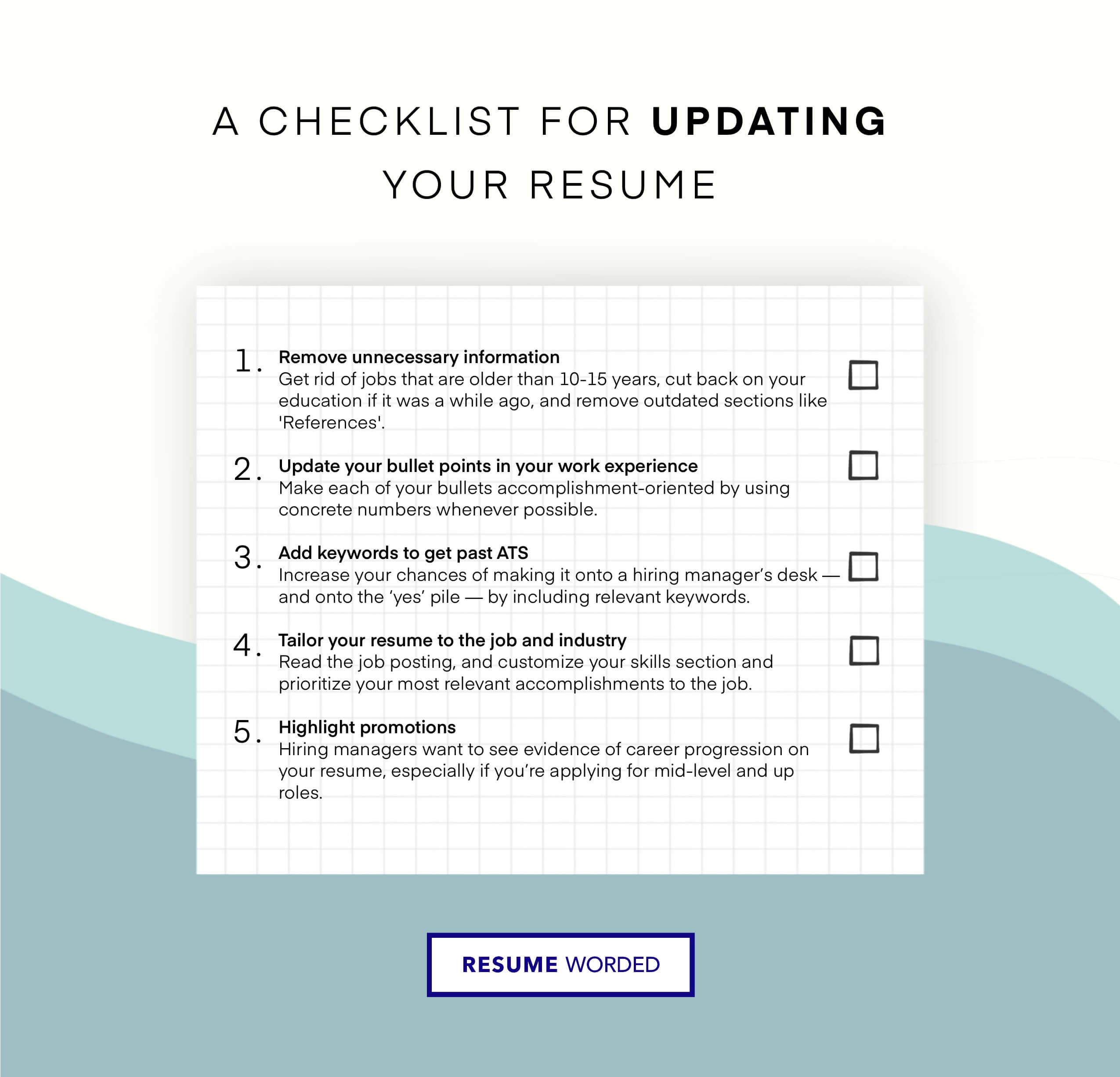When searching for a new job, revising your resume is definitely a task to tick off your to-do list. Adding new certifications and job updates to the document can feel tedious, and finding the right word to describe your impact can be stressful.
However, having a crisp resume makes you a more appealing candidate to hiring managers, which can result in you getting hired for your dream job more quickly.
In the sections below, you will learn the most important times to revise your resume and how to do it effectively.
When should you revise your resume?
If you’re in the job hunt, now is the perfect time to revise your resume. However, also give your resume a once-over when you:
- Get a new job or promotion. Starting a new role is the perfect time to update your resume because you have something fresh to add.
- Receive feedback on your resume. Implement any feedback a trusted colleague or supervisor gives you.
- Aren’t receiving any responses to your job applications. Something on your resume isn’t working, so revise.
Additionally, make it a habit to revise your resume at least once a year. This could be in January or at the start of another quarter. No matter when you decide to conduct your annual revisions, building this habit will help ensure your resume is always ready to go.
After revising, use the tool below to check if your resume needs any further changes or improvements.
Best resume revision tips
Here are some revising tips to help you during your resume editing process.
Revise your work experience bullet points
For maximum impact, make sure your work experience bullet points follow the “action verb + task + metric” format. For example, write, “Developed and nurtured relationships with over 100 clients, resulting in a 95% customer retention rate,” as opposed to, “Built strong relationships with clients.”
This bullet point format is effective on resumes because it’s concise and it demonstrates your impact by showcasing tangible outcomes.
Spotlight your newest professional developments
When revising your resume, make sure your latest professional developments are listed. During the editing process, check that you’ve included any new certifications or degrees you’ve earned since you last revised your resume.
If you have the space, also include any trainings or conferences you’ve attended recently. This is especially helpful if you’re transitioning from one industry to another and don’t have a lot of professional experience in your new field.
Remove irrelevant or outdated information
Cut anything out of your resume that doesn’t 100% align with the job you’re applying for. Hiring managers want to know you’re committed to the industry, and your resume needs to draw a clear line between your past experiences and the position you want.
If you’re applying for a managerial role at a bank but spent the last decade bouncing around from working as a server to being a teacher then ending up as an office manager, edit it down.
Even though these job titles don’t necessarily translate to “bank manager,” the skills might. Edit your bullet points so they highlight the transferability of what you learned in those roles and how they’ll impact you in your next position.
Likewise, remove any content in your resume that’s outdated. Make sure your resume reflects your most recent promotions and titles changes.
Trim your resume to fit on 1 page
When it comes to resumes, less is more. Unless you’re a seasoned professional with years of relevant experience in your field, submit a 1-page resume to any job you’re applying for. Having a concise resume will show potential employers you can prioritize important information.
- Contact Information: To make sure everything fits on one page, first take a look at your formatting. Is all of your contact information on one line? If not, rearrange it so it fits.
- Education: Then, move on to your education. Unless you just graduated or are still in school, you only need to list the institution you attended, when you were enrolled, the degree you got, and any special awards you won.
- Work Experience: If you still need to cut from there, remove any irrelevant bullet points from your “Work Experience” sections. Additionally, unless they’re necessary, remove the “Skills” or “Hobbies” sections altogether.
Proofread — then proofread again
Submitting a sloppy resume could cost you the job before you even have the chance to interview. Silly typos, grammar mistakes, and formatting issues make your resume look less polished, and, ultimately, unprofessional.
Save yourself trouble down the line by proofreading your resume at least twice before you submit it along with your job application. If you need an extra set of eyes to give it a look, ask a friend to review it or run it through an online editing tool, like Grammarly.
How to simplify the resume revision process
When you’re knee-deep in job searches, nothing is worse than sending out a resume and hearing crickets. If you think your resume needs a tune-up, you don’t have to do it alone. Instead of spending hours revising your resume by yourself, our free resume review tool can do it for you.
Score My Resume is a resume analysis tool that checks your resume against key criteria hiring managers are looking for. This AI-powered tool evaluates everything from your resume layout and bullet points to word choice.
Take the guesswork out of your revision process and use our free resume checker today.










